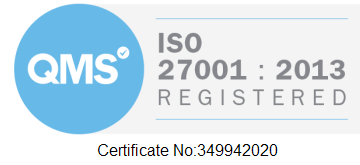If you’re managing very large estates, you know the monthly drill. The clock ticks down to the 15th of the month, then the bills come in, then you spend the next 2 weeks madly going through the bills you need to validate. But what if this could be done differently? What if the whole process was a breeze and the 15th came and went without you barely noticing?
Follow the 1 to 5hr rule
Most billing issues begin life as consumption differences, change of site or sites in query. And if you track these issues to source, they typically begin in either site data or metering – we refer to these as foundation modules because they form the base for all other downstream activities. As with the foundations of a house, get these parts right and the rest will be easy. In fact, we think for every 1hr you spend making the foundation modules work, you’ll probably save 5hrs later on. Having accurate reliable data, is the starting point for any billing, budgeting and energy analysis. So getting this right really helps.
Read our handy tips, ‘overview of metering management’ in our new digital help guide found by clicking the help icon in your hub.
Add some metering magic
Check your data. Make sure you’re checking your meter data daily or weekly, so you can report issues early to both your supplier and meter company. It’s a good idea to get these fixed early on, before the bills are even produced. That way you’ll avoid those consumption differences later on.
And share it. Share this data quickly and easily, by allowing your meter providers and suppliers access to the metering data via the Hub. It’s important to circulate and make everyone aware early on – this is what you plan to measure the bills on. Remember that’s why we created the Hub – so you can share and collaborate with those that matter!
Get your site data right
Check your data Equally important, is your site data. By spending time early in the month getting site data correct, making sure information is up-to-date, and power/gas/water details are accurate – you’ll probably save many more hours later on, in your validation, budgeting and billing processes.
And share it Make sure you are sharing queries early in COTs and sites in query. And make sure everybody is in sync with any outstanding issues, so you don’t receive any additional bills to add to the query management. Remember to collaborate with your partners and suppliers too, by sharing changes in site information, meter data problems, standing data changes and before the bill run with the supplier if you can. In doing so you’ll save time for everyone!
Target those Top 5 issues
And don’t forget our good friend Pareto and his 80/20 rule – 80% of your problems come from 20% of your actions. Take a look at the Top 5 issues in billing on your dashboard, and focus in on the key areas that matter. The validation engine runs a count of all the major issues on bills. You can run a handy report on this if you want, so you can see a count of issues and costs. What you will probably discover is that most of your issues (80% if pareto is right?!) will be with just 20% of your items – and our guess is metering and site data will be top of that list.
Why not try it this month? Take a look at your top 5 issues in your Hub dashboard, and look to trap the problem at source in metering or sites.
We’ve listened to your insights and we know that the further a problem passes along the “production line” longer it takes to resolve. Say for example, you were to spend an hour in metering and identify an issue. This will stop the bill being produced incorrectly, the bill getting validated and failing, a credit note being issued, a new bill getting raised and then the check happening for the revised bill. That’s the beauty of the 1hr to 5hr rule!
So avoid the mid-month rush, by focusing in on foundation modules, and making sure you share data early on with those that matter. We think you’ll end up saving lots of valuable hours, and the 15th will be a breeze.



